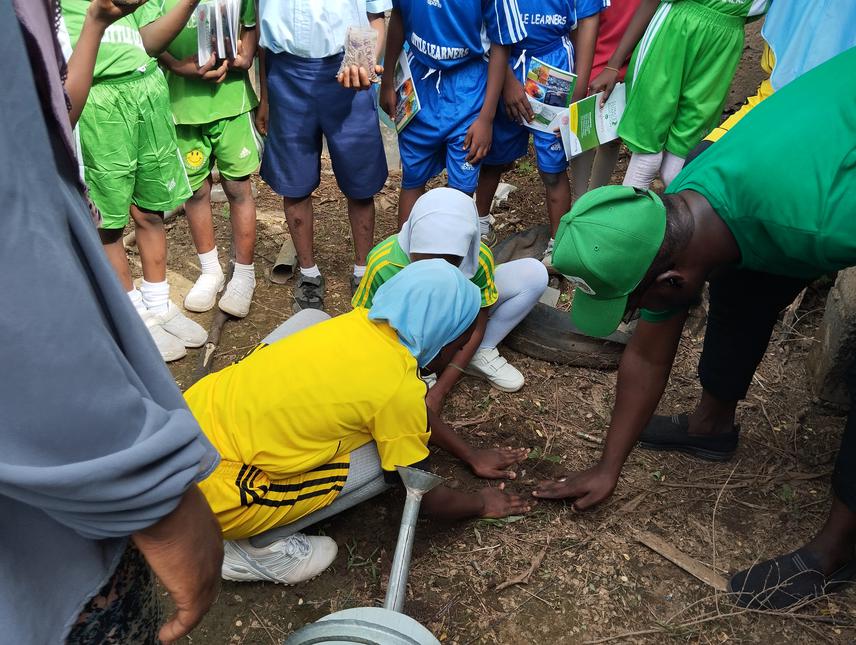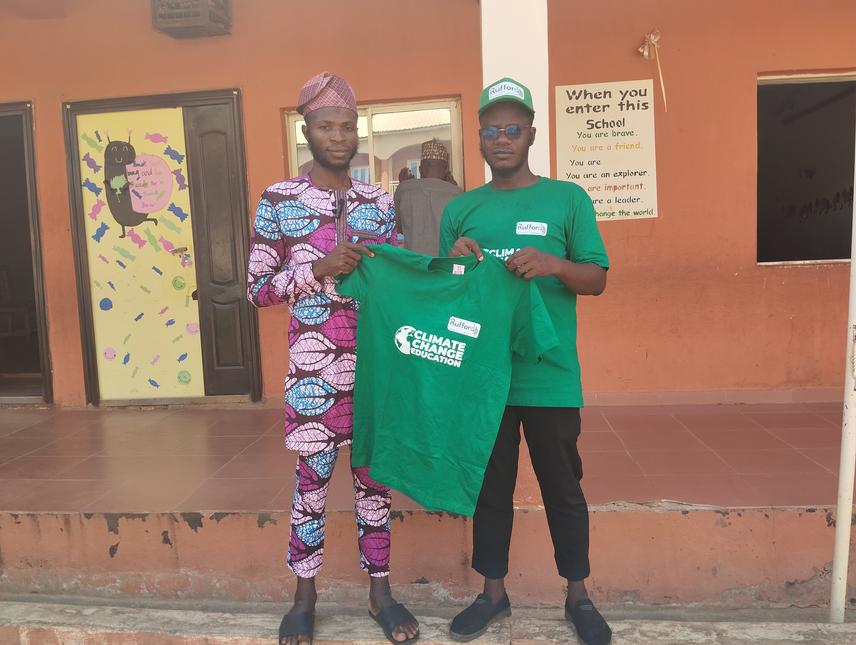Social media video featuring the project.
Radio Kwara News - Rufford Foundation - Climate Change Education in Primary Schools in Ilorin.
Combating Climate Change Through Education, Nursery Establishment and Tree Planting in Secondary Schools in Ilorin, Kwara State, Nigeria
Nigeria is one the highly vulnerable countries to the effects of climate change due to its location in the Sahel region, where temperatures are rising, and rainfall patterns are changing. The country is highly vulnerable to extreme weather events which has led to food insecurity, water scarcity, deforestation, loss of biodiversity and health risks. Specifically, in Kwara State, Nigeria, the effects of climate change are particularly visible and have been felt in different sectors.

Tree planting. ©Farhan Moshood.
Nigeria runs the 6-3-3-4 system of education where primary education is attended for 6 years, junior secondary for 3 years, senior secondary for 3 years, and university education for 4 years. As crucial as climate change education is, it is nowhere to be found in the primary school curriculum in Nigeria even though the highest number of years is spent in primary school. Primary schools are a great place to start teaching about climate change because children are still developing their understanding of the world around them and learning how to think critically about complex issues. Through climate change education, primary school children can gain a better understanding of the science behind climate change, learn how their daily decisions can impact the environment, help them understand their role as global citizens, and develop a sense of responsibility toward protecting the planet.

Outside of a school. ©Farhan Moshood.
Therefore, our decision to embark on this project is due to the non-inclusion of climate change education in the curriculum of primary schools in Nigeria which is a major setback for the country and the West African sub-continent at large. Educating children about climate change as early as possible is crucial so that they can understand the causes and consequences of the problem and take action to reduce their carbon footprint. Thus, the project aims to increase climate literacy among school children in selected primary schools in Ilorin (Objective 1). The project will focus on developing a detailed curriculum to teach the children the causes, impacts, and relevant solutions to climate change, and will include a series of classroom sessions, hands-on activities (Objective 2). Furthermore, the project will introduce a climate change club in the selected primary schools to create awareness and educate the kids on climate change (Objective 3).
Social media video featuring the project.
Radio Kwara News - Rufford Foundation - Climate Change Education in Primary Schools in Ilorin.
Article featuring the project.